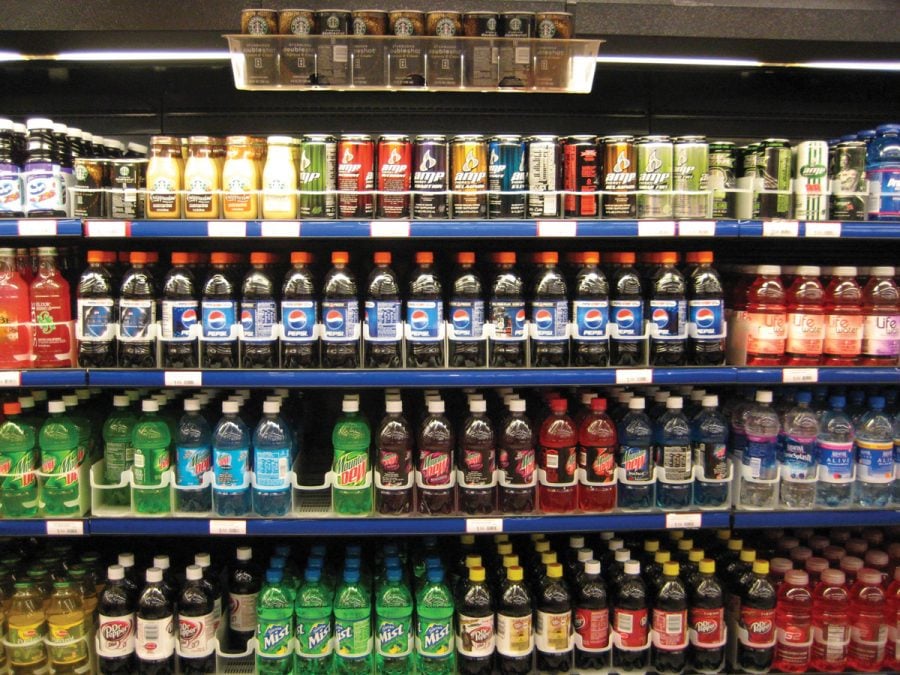New college study shows possible link between sugary drinks, colon cancer
Sodas and soft drinks at a supermarket.//Photo courtesy Marlith/Wikimedia
For many years, obesity has been linked to higher rates and faster growth of cancer cells in at-risk patients. Recently, studies by a team of specialists from Baylor College of Medicine and Weill Cornell School of Medicine in New York have identified a clear link between sugary drinks and the accelerated growth of tumors in colon cancer.
First, the researchers used molecular biology techniques and increased knowledge of the mouse genome from newer technological developments to create “knockout mice.” These mice are created in a process very similar to in-vitro fertilization, with the caveat that their genome is first sequenced and altered to measure the results of a change in phenotype.
These knockout mice are also known as model mice when they are used to mimic symptoms associated with human disease, including cancer, diabetes, obesity and others. In the case of this research study, the clinicians removed the APC gene from the mice’s gene sequence. This gene encodes a protein with the same name, and its deletion simulated a mutation that characterizes fast-growing colon cancer in humans.
“APC is essentially the gatekeeper of in colorectal cancer,” says Dr. Jihye Yun, who is an assistant professor of molecular and human genetics at Baylor College of Medicine. Although we know the risks of obesity and other metabolic diseases with certain cancers, this is an additional risk that could result from the consumption of sugary drinks.
In order to get an accurate conclusion about the effect of the sugary drinks on mice, the researchers administered fructose via a syringe to the mice and compared their results to the results of a set of control mice.
The mice with the added fructose developed larger, more advanced tumors than the rodents who had only received water.
The research took the experiment one step further by focusing on two particular monosaccharides, glucose and fructose, to follow their path to reabsorption and their effect on colon cancer. Yun found that mice with the ACP mutation that received moderate daily doses of the sugary drink had high amounts of fructose and glucose, similar to the content found in most energy drinks.
“Our findings suggest that the role of fructose in tumors is to enhance glucose’s role of directing fatty acids synthesis,” said Yun. “The resulting abundance of fatty acids can be potentially used by cancer cells to form cellular membranes and signaling molecules, to grow or to influence inflammation.”
Although further study will be necessary before we are able to apply these results to humans, the overall results support the idea that even a modest amount of soft drinks or sugary energy drinks, which often contain large amounts of high fructose corn syrup, could boost tumor growth and progression independently of obesity.









